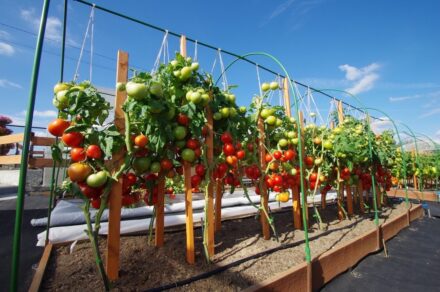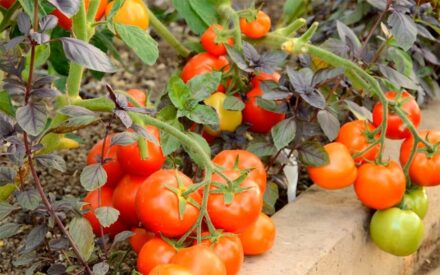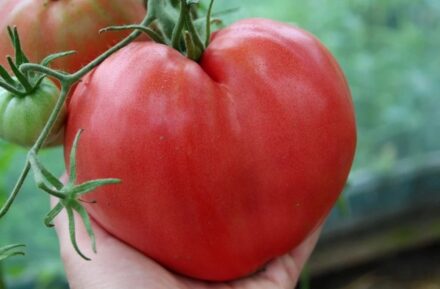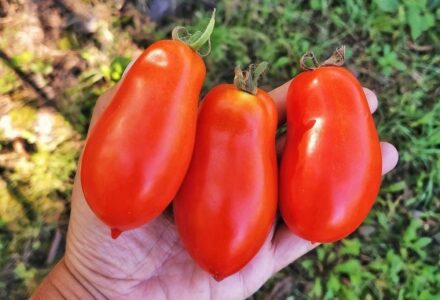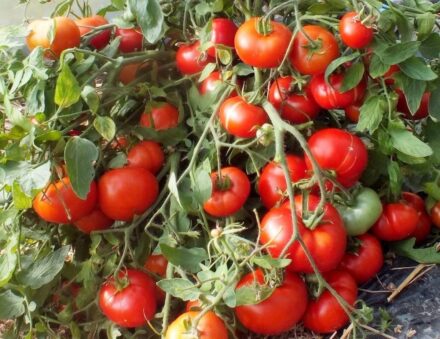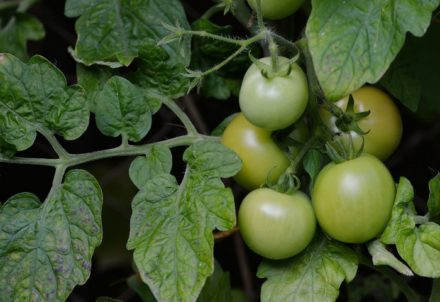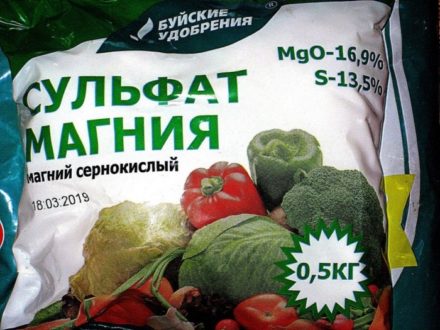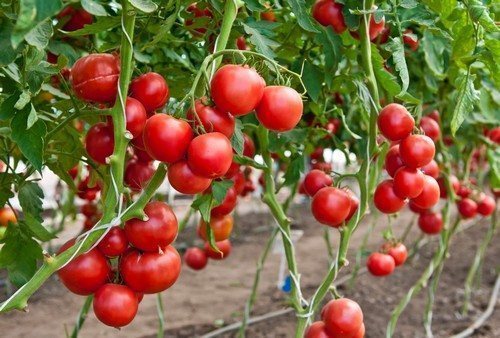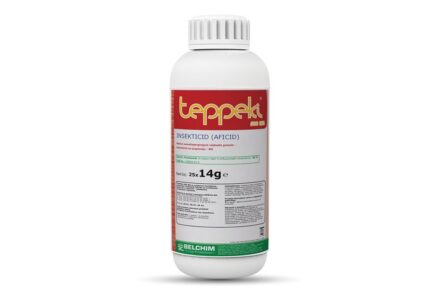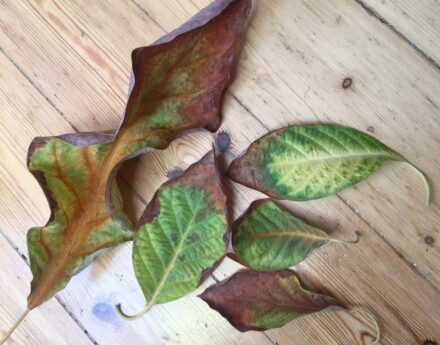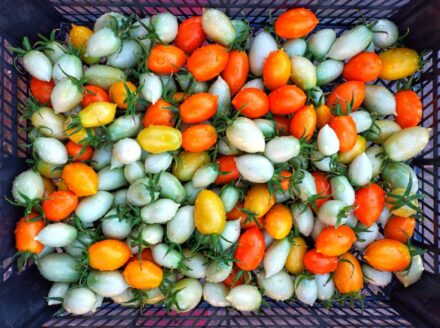One of the early ripening and productive varieties is the Los F1 tomato. It is highly resistant to diseases and unpretentious. Gardeners have already appreciated this variety, although it appeared not so long ago. It is grown both in open ground and under film.
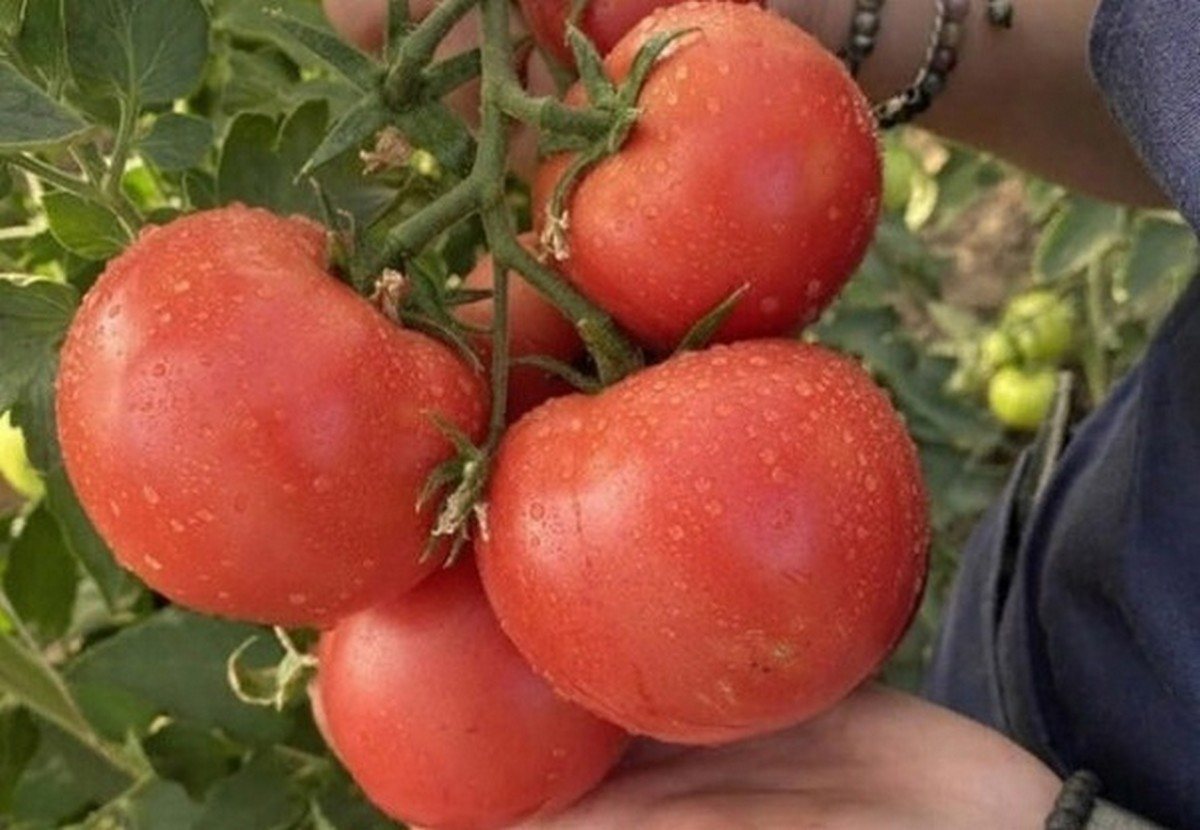
- History of selection
- Description and characteristics
- Photo
- Productivity
- Resistance to pests and diseases
- Methods of application
- Agricultural technology
- How to plant
- Growing
- Harvesting
- Advantages and disadvantages
- Reviews
History of selection
The hybrid was produced by the company "Seeds of Altai", selected by the scientist P. Saraev. Tomato Los F1 is a beef tomato. These are special “beefsteak” varieties, large in size, meaty and tasty. The plant was tested in the Siberian region and proved to be excellent.
Description and characteristics
The variety is indeterminate, tall, and grows especially well under cover. In the soil, the height is 140 cm, while under cover it reaches 250-270 cm. The bushes are powerful, with dark green dense foliage, with strong stems. Each plant produces 8-10 branches, and they are covered with fruits.
The tomatoes are large, round in shape, smooth. Weight is 150-250 g, but there are specimens up to 400-500 g. The unripe fruit is light green, and as it ripens it becomes crimson and bright pink. The tomatoes are fleshy, not watery, with a dense, but not thick skin. The taste is sweet, high in sugar, with a real tomato undertone, not sour.You can pick the fruits from the bush when they are brown; they ripen well indoors and do not become flabby.
| Ripening time | Early tomato, 95-100 days after planting |
| Color/Color | Fruits are bright pink or crimson in color |
| Plant height | Height reaches 2.5-3 m |
| Fruit size | Large-fruited |
| Fruit weight | 150-250 g, maximum up to 600 g |
| Type of fruit | Flat-round shape |
| Number of fruits per cluster | Formed from 3 to 8 pieces per brush |
| Landing location | For greenhouses, but can also grow in open ground |
| Planting scheme | In a checkerboard pattern, 40x40 cm, then tied to a trellis |
| Category | Hybrid |
| Bush type | Indeterminate |
| Conditions | Sunny, windless place |
| Year of approval for use | Unknown |
| Authors | Breeder Pavel Saraev, producer of the agricultural firm "Seeds of Altai" |
In any region, this variety of tomatoes grows successfully and produces high yields. Even cultivation in Siberia and the Urals gave positive results. The plant is cold-resistant and tolerates short frosts. It also withstands heat and does not wither in greenhouses. The high density of fruits allows long-term storage and transportation over long distances.
Photo
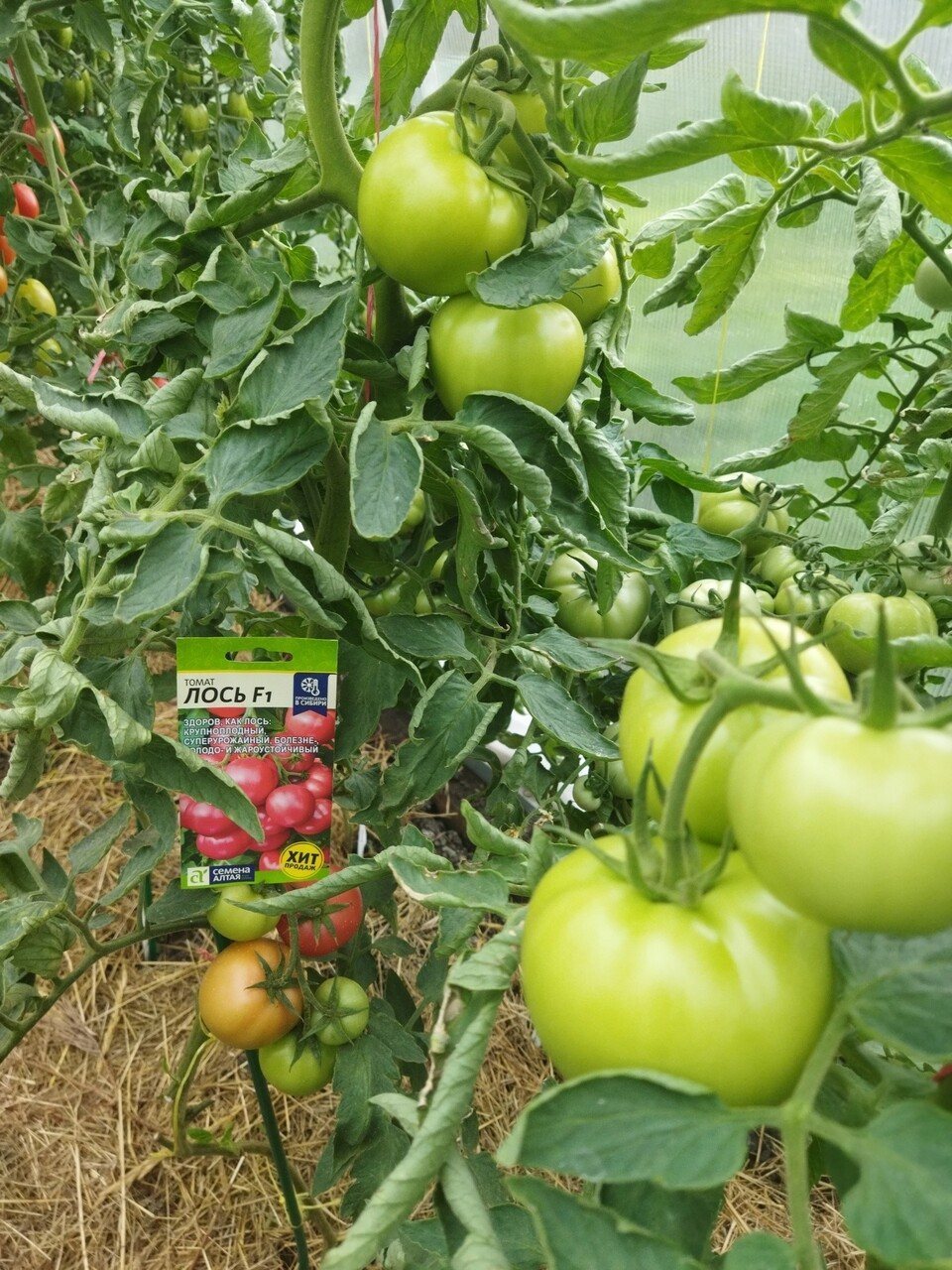
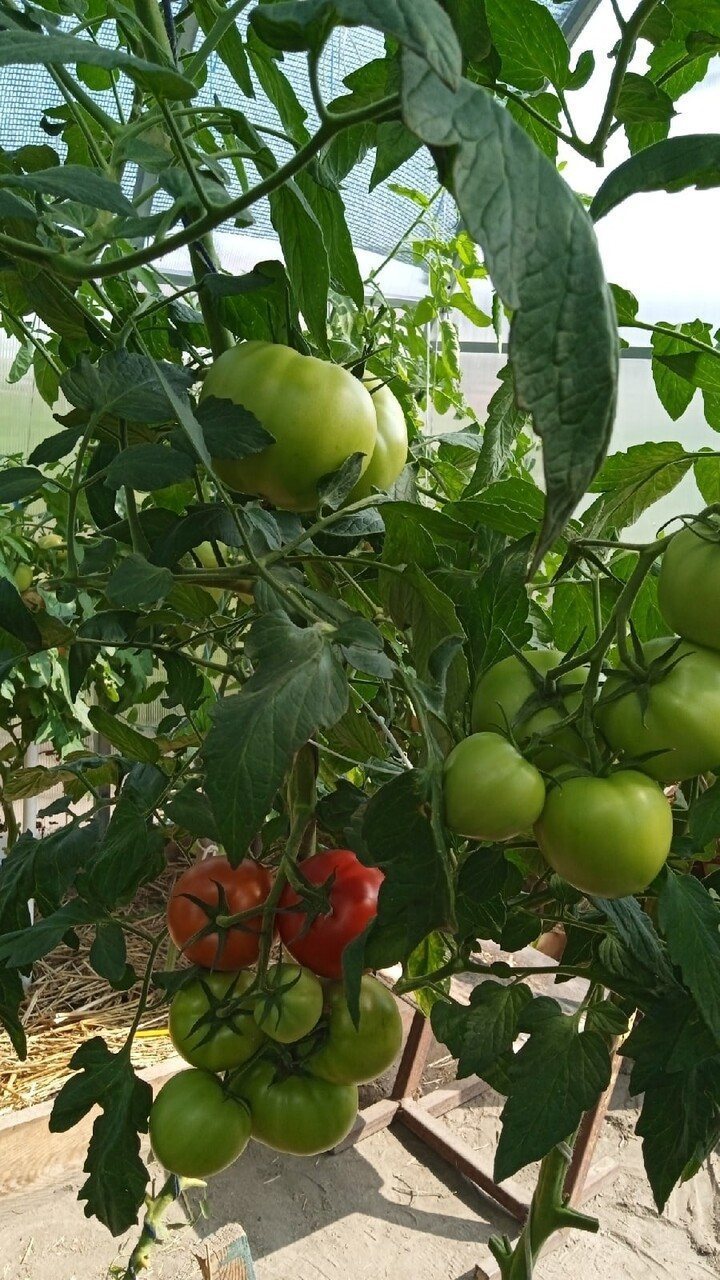
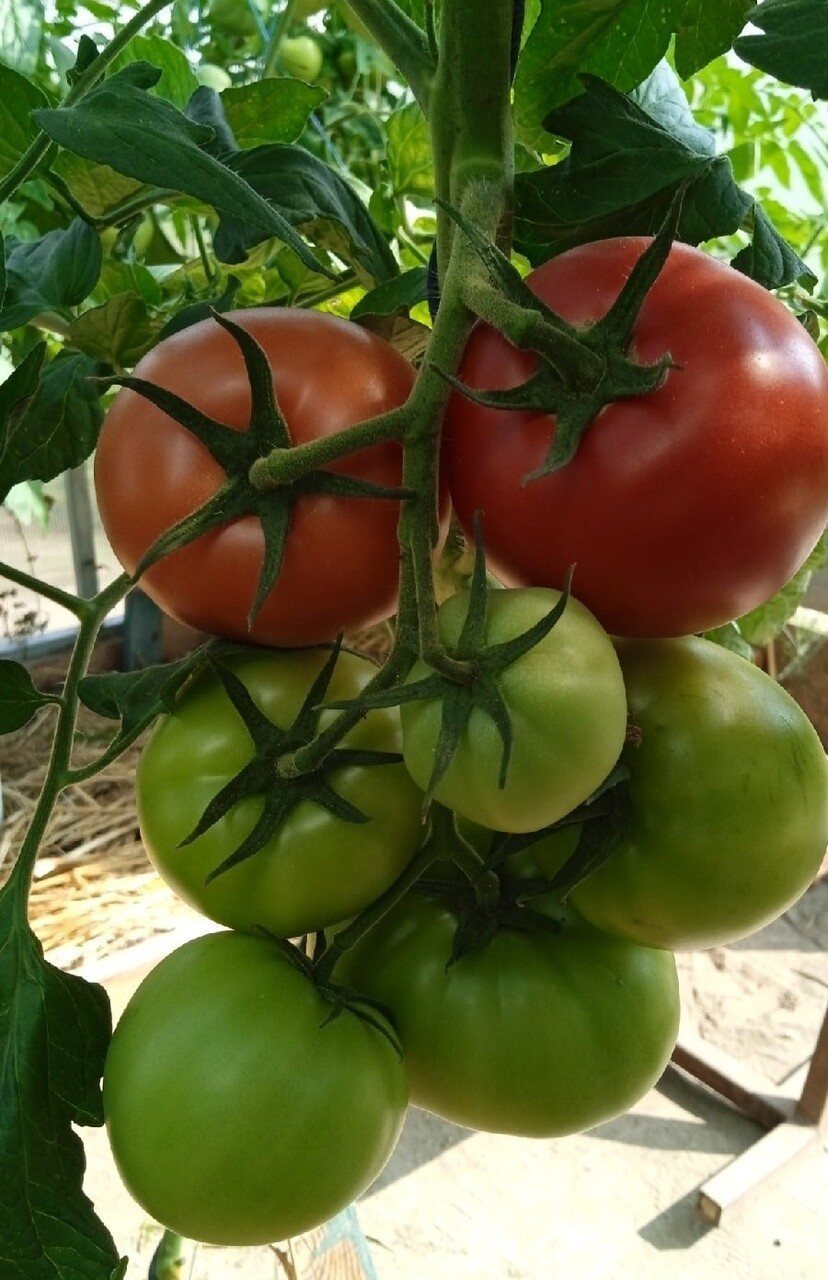
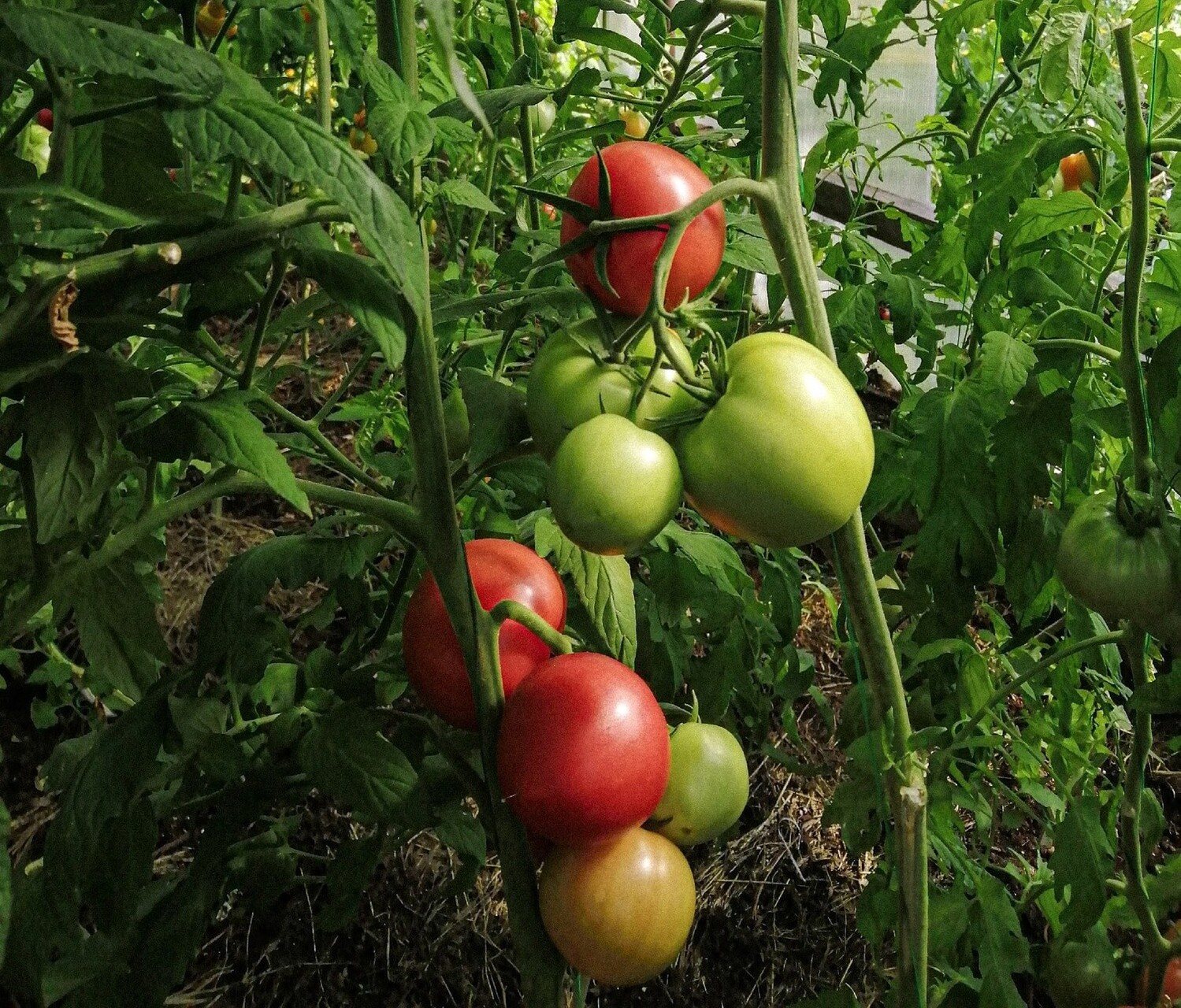
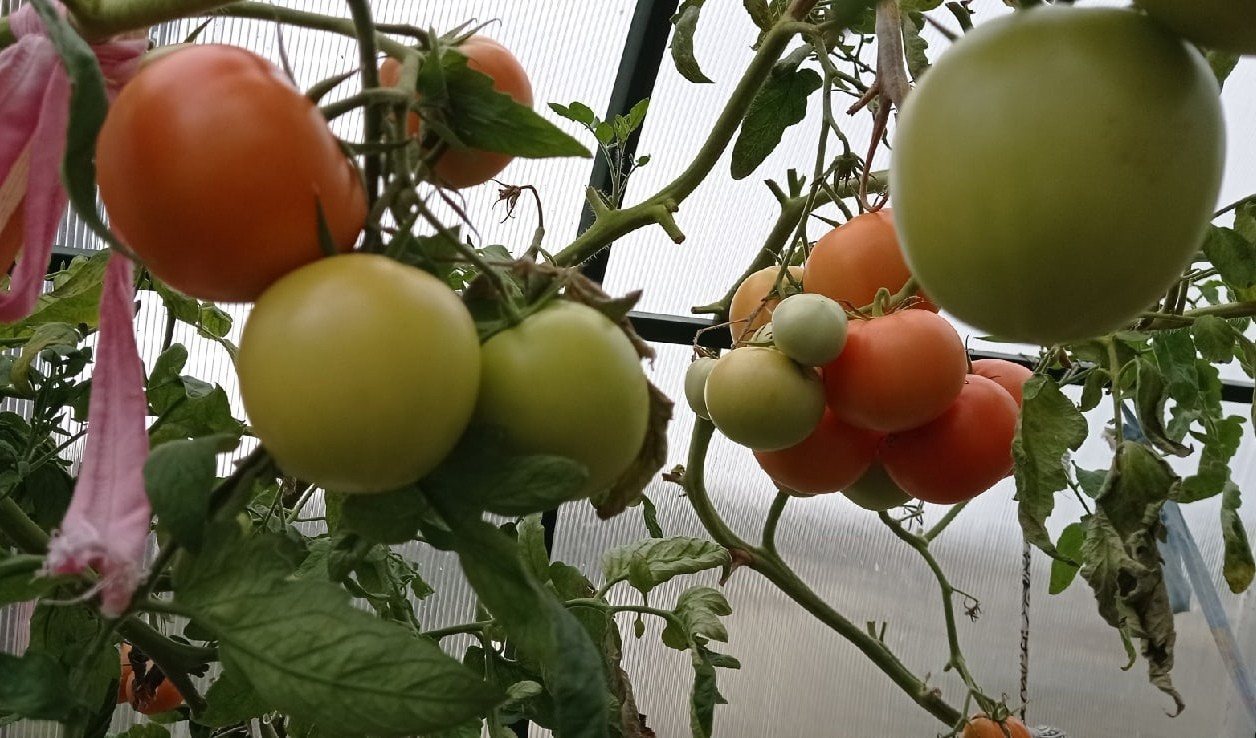
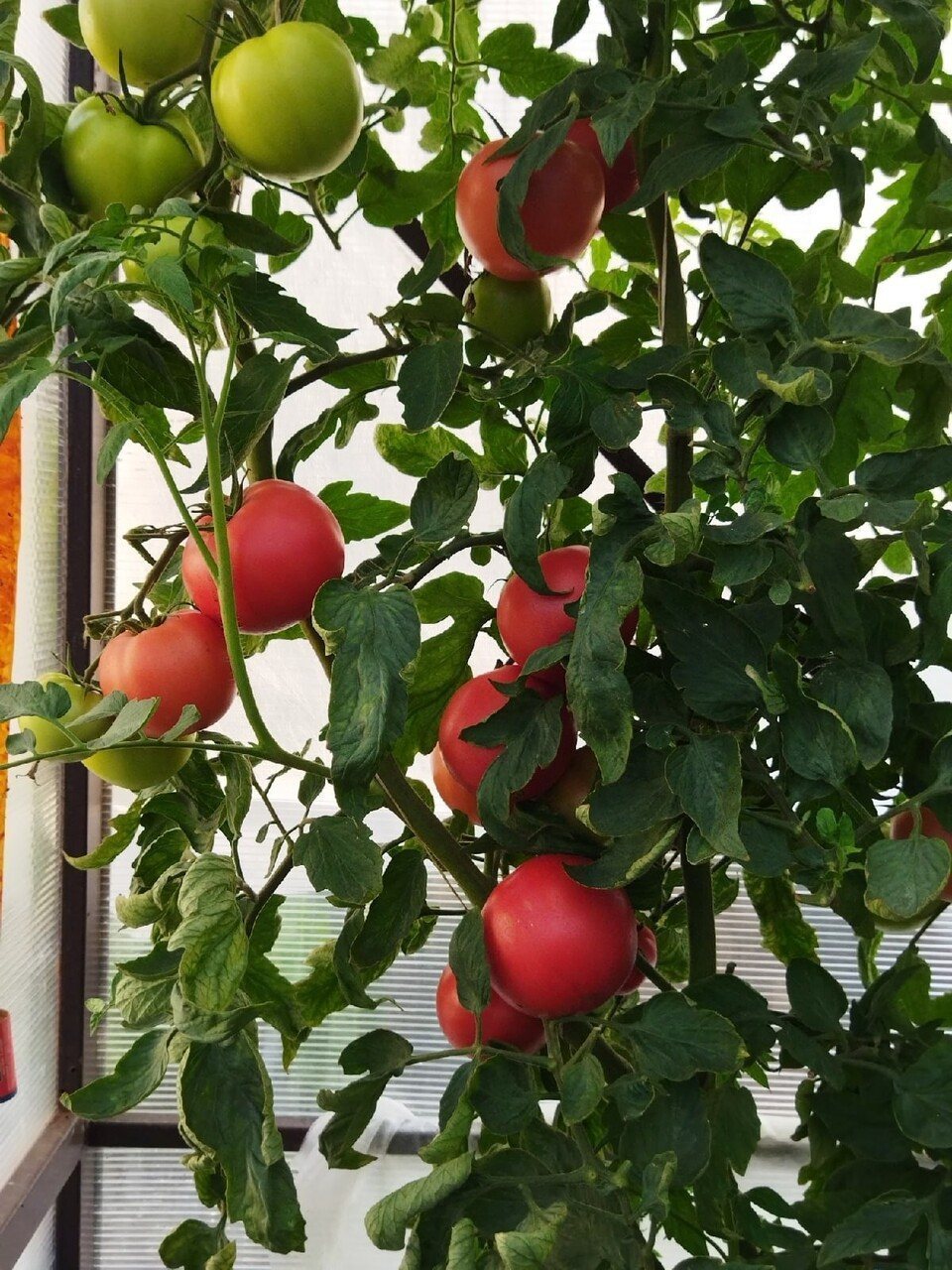
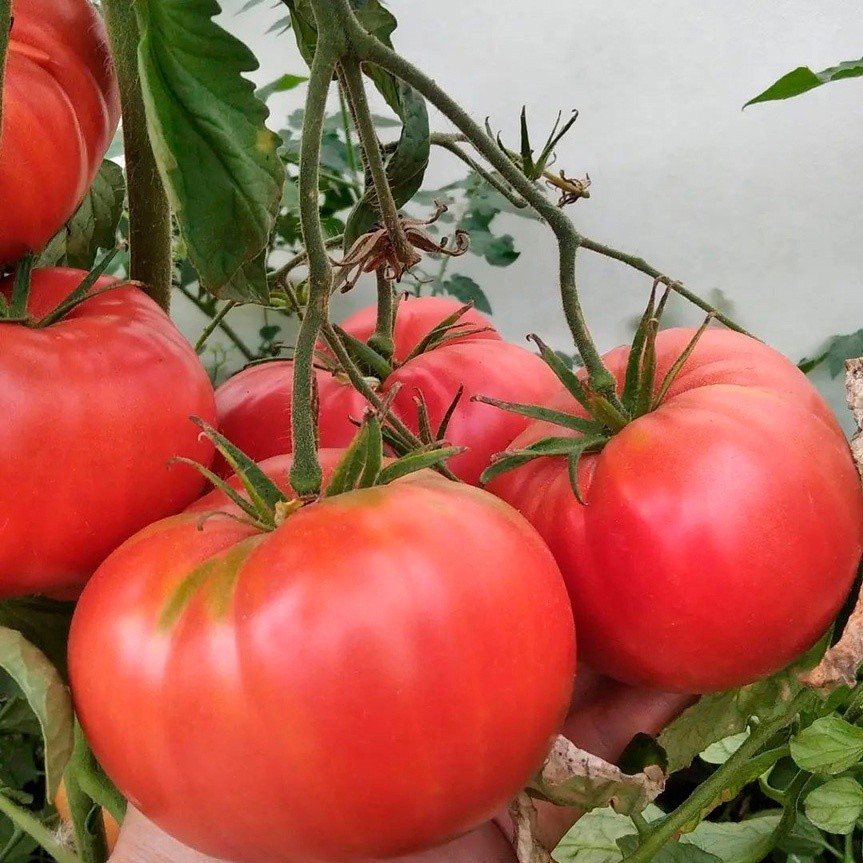
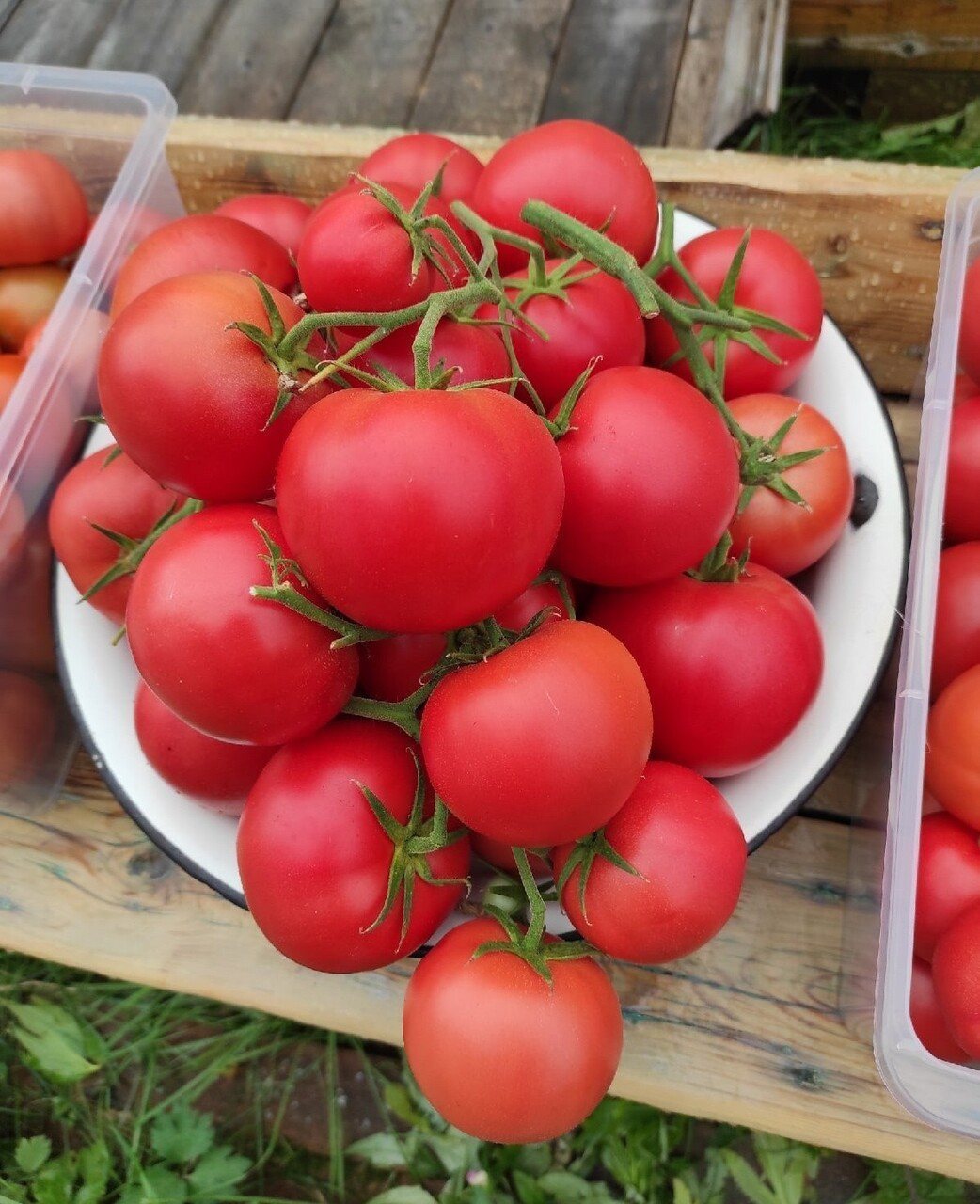
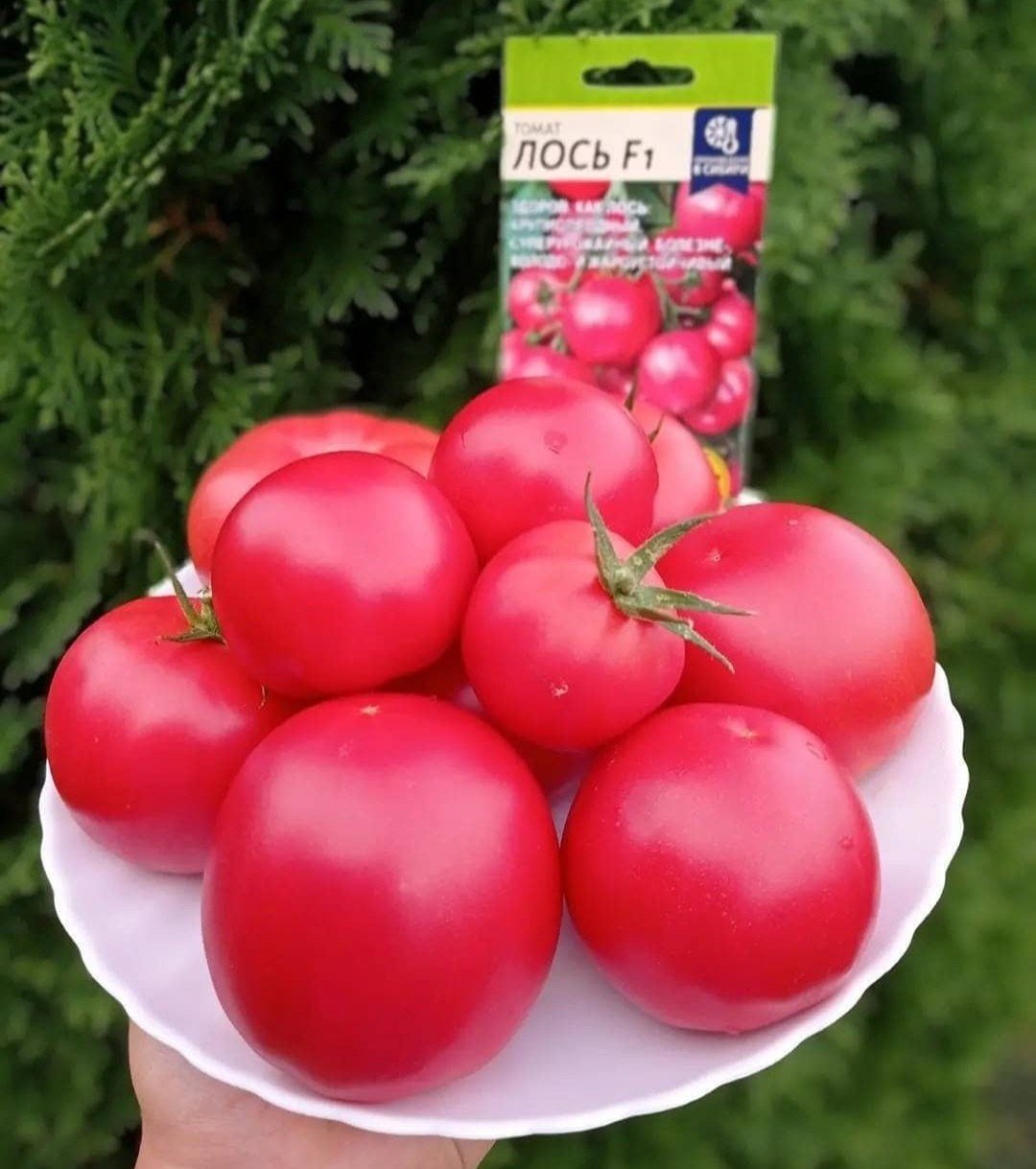
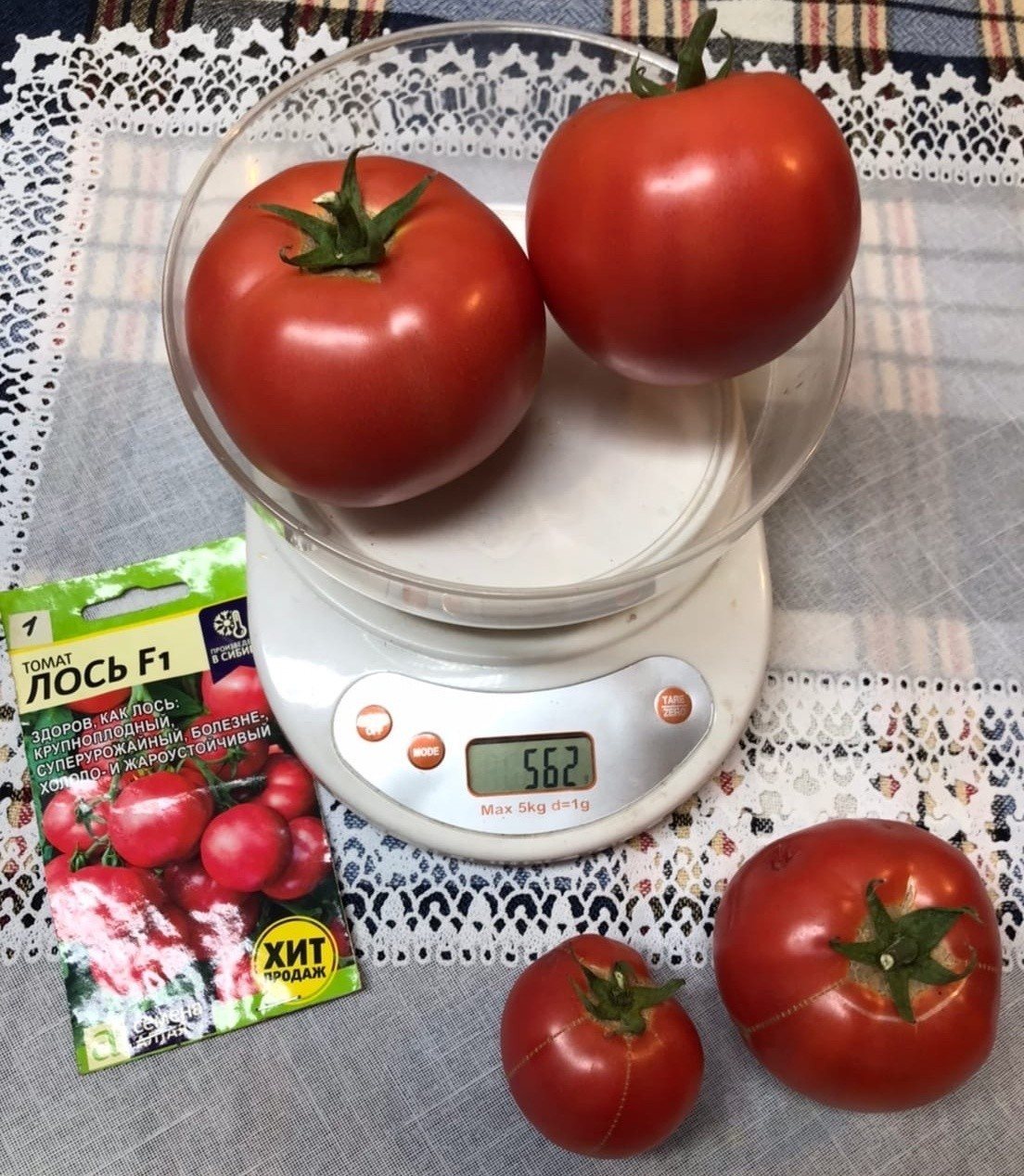
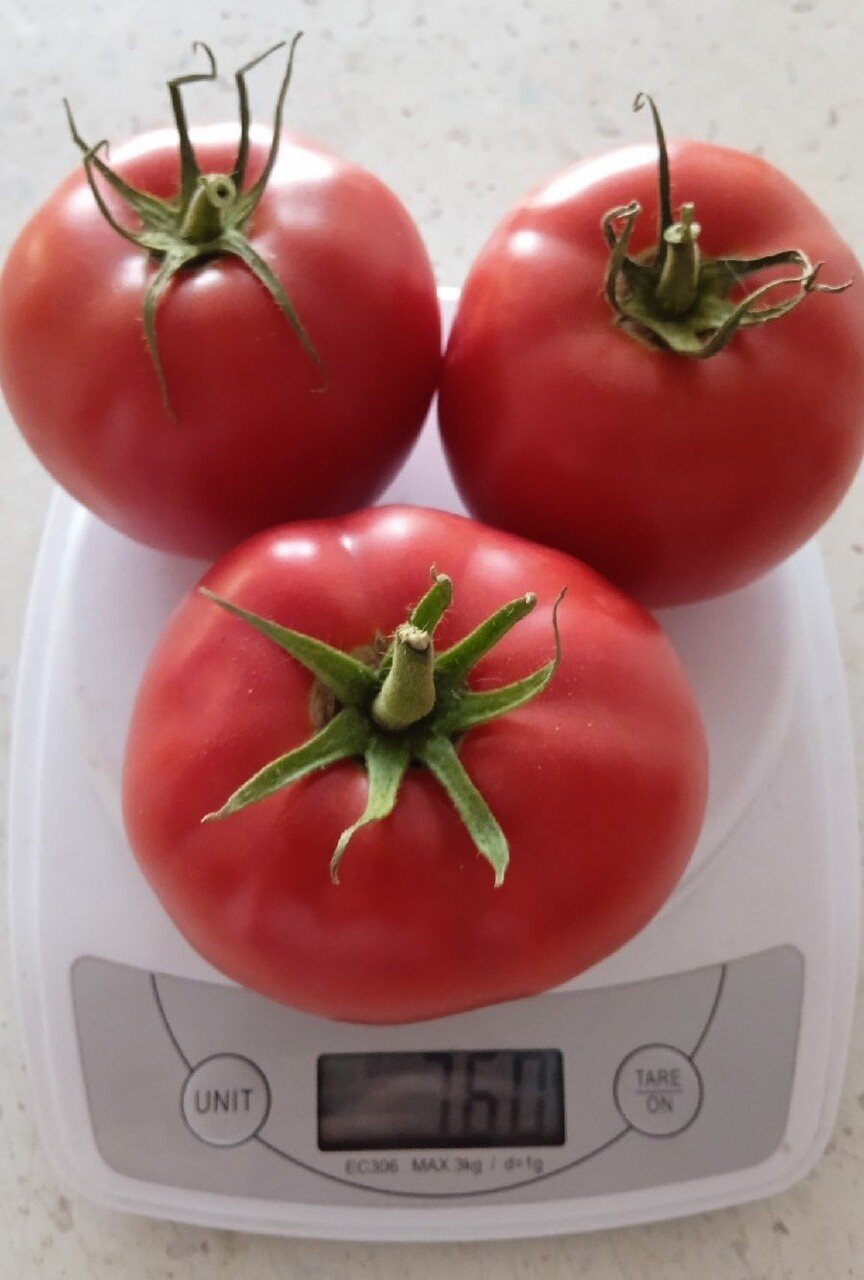











Productivity
Hybrid Elk is grown both for personal consumption and, thanks to its good keeping quality and transportability, for sale. The yield of the variety is high - when performing agricultural technology, it produces up to 46 kg of tomato per 1 square meter per season! One plant produces 35-40 tomatoes, the total weight of which is approximately 8 kg.
The variety has no problems with ovaries; they form stably at both low and high temperatures. Ripening occurs 95-110 days after sowing in the soil.To get a high yield, the plant is formed into 1-2 stems, and the stepsons are removed in a timely manner.
Resistance to pests and diseases
The name of the variety fully justifies itself - it is resistant to a large number of known tomato diseases. F1 moose has innate immunity. He is not at risk of such problems as cladosporiosis and tobacco mosaic virus. But this does not mean that it is not necessary to take preventive measures to protect against pests and diseases.
The variety does not have complete protection against late blight, but it is still more resistant than other representatives of tomato crops. For prevention, treatment with the following drugs can be used:
- Fitosporin-M;
- Home;
- Fundazol;
- iodine solution;
- composition of manganese and garlic.
In greenhouses, bushes are dusted with a mixture of tobacco dust and wood ash. To avoid missing an infection, plants need to be inspected regularly.
Methods of application
Gardeners who have already used the fruits of the Elk hybrid note its pleasant taste, lack of sourness and sugar content. The variety is especially good for salads and slicing. But it is also suitable for conservation. Only for pickling, it is better to remove unripe fruits so that they do not crack from boiling water.
How to use Los F1 tomatoes:
- salad, sliced;
- canning in sliced and whole form;
- freezing;
- drying and drying chopped fruits.
Thanks to their thick skin, tomatoes can withstand both storage and transportation. For better preservation indoors, the fruits are harvested at milk ripeness.
Agricultural technology
Growing the Elk F1 tomato according to agrotechnical measures is similar to other tomato crops. First of all, it is recommended to plant it in a greenhouse.But even in open ground it gives good yield indicators.
How to plant
The variety is grown in seedlings. Seeds are planted in March or April, depending on the region.
The main stages of planting the variety Elk F1.
- Sow the prepared seeds in small containers under film. The soil must be compacted and nutritious. Planting depth 1 cm. Layout 3x3 cm.
- After the first leaves appear, the shelter is removed. Favorable temperature is about +15°C.
- The seedlings are watered with a spray bottle so as not to wash away the soil layer and damage the seedlings.
- After a week, the temperature can be raised to +22°C, and the pots can be placed in a sunny place.
- The appearance of real leaves is a signal that it is time to plant the seedlings.
May-early June is the time when grown plants can be planted in a greenhouse. If you plan to grow outdoors, choose a sunny, windless place.
Growing
This variety of tomato produces high yields if the rules of agricultural technology are observed. It loves warmth, needs abundant irrigation, staking of shoots and pinching.
The main points of growing the hybrid Elk F1.
- It is recommended to form the bush into 1 stem. This way it gives the best results. It can be grown with 2 trunks, but there is a risk of splitting from the load when the fruits appear.
- 10 days after planting in a permanent place, the plant is tied to a trellis. As the stem grows, it is twisted around the twine.
- This variety is very responsive to pinching and quickly forms fruits after the procedure. They groom regularly, once a week, preferably in the morning. Be sure to leave the stump at 3-4 cm so that the stepson does not grow back.
- Be sure to loosen the soil after watering and remove weeds.
- Water abundantly with warm water, 1-2 times a week. Each plant requires 10 liters of water. In the greenhouse, it is possible to install drip irrigation to maintain humidity.
- Tomatoes must be fed 2-3 times throughout the season. It is recommended to use bush support after planting and during fruit formation.
Fertilizer application scheme:
| 14 days after landing | Potassium sulfate, ammonium nitrate (1 tbsp per 10 liters of water) |
| Mid summer | Magnesium sulfate (1 tbsp per 10 liters of water) |
| Formation of tomatoes | Potassium sulfate (1 tbsp per 10 liters of water) |
It is not recommended to overfeed tomatoes with fertilizers. Excess can be bad for plants.
Harvesting
One of the main points that characterizes this variety is that the fruits must be collected as they ripen. This stimulates the plant to form new ovaries.
The end of July and the beginning of August is the time to collect the first fruits of tomatoes. Since the variety bears fruit for a long time, the crop is harvested periodically. Brown tomatoes ripen well indoors. Store in a cool place for up to half a month.
Advantages and disadvantages
The variety has positive and negative sides. It is grown quite successfully in many regions and is loved by vegetable growers.
Advantages of a hybrid:
- disease resistance;
- long fruiting;
- large fruit;
- sweet taste;
- possibility of storage and transportation;
- universal use.
Minuses:
- bush formation is required;
- need stepsoning;
- seeds must be purchased because it is a hybrid.
Tomato Elk F1 has more positive qualities and can be used for summer cottages.
Reviews
Generally, the feedback about the hybrid is positive. But to get to know it better, you need to plant at least a couple of plants to test.
Tomato Los F1 is a fairly new hybrid, recommended for planting in the middle zone, as well as in the Urals and Siberia. Good taste, productivity and transportability, disease resistance positively characterize the variety. It is important to follow the basic aspects of agricultural technology in order to get a harvest.


